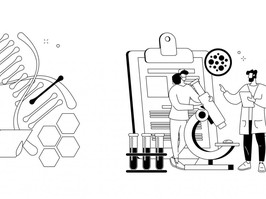you should understand the purpose of the clinical trial
ultimately, the goal of
clinical trials is to improve medical treatments and peoples’ health and well-being. they are done to provide research data, or evidence, about the treatment tested. however, in different clinical trials, the evidence, or results, can be used in many ways.
for example, with very new or experimental therapies, the purpose of the clinical trial can be to provide information about an intervention’s safety and side effects. other trials might aim to test how long the effects of an intervention last or determine the best dose of a medication.
this information should be disclosed to you in the informed consent form before you begin a trial. if anything is not clear, you should ask questions until you have a good understanding of the purpose of the trial.
there are risks and benefits to being in a clinical trial
it is up to you to decide if the potential benefits of the clinical trial outweigh the potential risks, as well as to consider how not participating in the clinical trial may impact you. potential benefits and risks will be dependent on the clinical trial and will be different for each one.
it’s important to ask questions about potential benefits and risks of the clinical trial you are considering, until you feel satisfied.
 4 minute read
4 minute read







